ADA
$ 0.258171 USD
$ 0.258171 USD
$ 9.4561 billion USD
$ 9.4561b USD
$ 445.092 million USD
$ 445.092m USD
$ 7.4771 billion USD
$ 7.4771b USD
36.0621 billion ADA
Cardano-related information
Issue Time
2017-10-02
Platform pertained to
--
Current coin price
$0.258171USD
Market Cap
$9.4561bUSD
Volume of Transaction
24h
$445.092mUSD
Circulating supply
36.0621bADA
Volume of Transaction
7d
$7.4771bUSD
Change
24h
-2.75%
Number of Markets
1680
Github Messages
More
Warehouse
Cardano
Github's IP Address
[Copy]
Codebase Size
13
Last Updated Time
2020-10-05 10:25:01
Language Involved
--
Agreement
--
Crypto token price conversion
Current Rate0
0.00USD
ADA Price Chart
Cardano introduction
 Markets
Markets3H
+1.29%
1D
-2.75%
1W
-9.56%
1M
-31.33%
1Y
-61.46%
All
+971.57%
| Aspect | Information |
| Short Name | ADA |
| Full Name | Cardano |
| Founded Year | 2015 |
| Main Founders | Charles Hoskinson, Jeremy Wood |
| Support Exchanges | Binance, Coinbase, eToro, Bitfinex, Kraken,Huobi Global, Okex, Bittrex, KuCoin, Crypto.com etc. |
| Storage Wallet | Daedalus, Yoroi |
Overview of Cardano (ADA)
Cardano (ADA) is a public blockchain platform founded in 2015 by Charles Hoskinson and Jeremy Wood. It is a decentralized, open-source project that uses a proof-of-stake (PoS) consensus mechanism to achieve scalability and security. Cardano is known for its research-driven approach and its focus on sustainability. It is also one of the most active blockchain projects in terms of development.
Cardano is known for its strong academic foundation and its focus on research and development. It is one of the most popular blockchains in the world, with a market capitalization of over $20 billion. Cardano is home to a growing ecosystem of decentralized applications (DApps), including NFT projects, decentralized finance (DeFi) protocols, and blockchain games.
Pros and Cons
| Pros | Cons |
| Secured by scientific peer-review process | Complex technology could be a barrier to adoption |
| Potential for high scalability | Less established than some competitors |
| Supports smart contracts | Dependent on the size and activity of development community |
| Transparent development roadmap | Unpredictable cryptocurrency market volatility |
| Accessible on multiple exchanges | Unproven long-term stability |
ADA Price Prediction
Over the coming decades, ADA's price is expected to experience fluctuations. By 2030, the trading range is projected to be between $1.78 and $2.10. In 2040, our forecast suggests ADA could reach a peak price of $4.16,with a potential minimum around $3.43.Looking ahead to 2050, technical analysis indicates that ADA's price could range from $5.08 to $6.22,with an estimated average trading price of about $5.10.
Crypto Wallet
The Daedalus wallet is a full-node hierarchical deterministic (HD) desktop wallet for the Cardano (ADA) cryptocurrency. It is developed and maintained by IOHK, the company behind the Cardano blockchain. The Daedalus wallet is available for Windows, macOS, and Linux.
What Makes Cardano (ADA) Unique?
ADA, short for Cardano, encompasses a unique dual-layer architecture, consisting of a settlement layer (CSL) and a computational layer (CCL). This structure separates the ledger of account values from the reason for transferring the values, offering more flexibility compared to many other cryptocurrencies which combine these layers.
Moreover, ADA's emphasis on a peer-reviewed, scientific approach towards development is a distinctive feature. This method means that every protocol modification undergoes extensive vetting by a community of scientists and academics before being executed. Such a rigorous framework aids in refining the design and security of ADAs protocols and updates.
Another innovative element of ADA is its Ouroboros Proof-of-Stake (PoS) mechanism for transaction validation. This consensus algorithm is considered as eco-friendlier and more energy-efficient than the traditional Proof-of-Work (PoW) systems used by Bitcoin and some other cryptocurrencies, which require substantial computational power.
How Does Cardano (ADA) Work?
Cardano (ADA) is a proof-of-stake (PoS) cryptocurrency, which means that it is secured by a network of validators who stake their ADA tokens to participate in the consensus mechanism. Validators are randomly selected to produce blocks and earn rewards in ADA tokens.
To send ADA, users simply need to create a transaction and send it to the Cardano network. The transaction will be processed by the network and confirmed by validators. Once the transaction is confirmed, the ADA will be transferred to the recipient's wallet.
To stake ADA, users need to delegate their tokens to a validator. When a user delegates their ADA, they are essentially lending their tokens to the validator so that the validator can stake them on the network. In return, the user earns rewards in ADA tokens. To vote on governance proposals, users need to have ADA tokens staked on the network. When a user stakes their ADA, they are given the right to vote on proposals that affect the Cardano blockchain.
Exchanges to Buy Cardano (ADA)
1.Binance: Binance is one of the most popular decentralized exchanges that supports ADA trading. It offers several trading pairs including ADA/USDT, ADA/BTC, ADA/ETH, and ADA/BNB.
See this link for details on how to buy Cardano (ADA):https://www.gate.io/zh/how-to-buy/cardano-ada
Choose a cryptocurrency exchange: There are numerous cryptocurrency exchanges available, each with its own features, fees, and supported currencies. Popular options include Coinbase, Binance, Kraken, and Gate.io.
Create an account: Once you've selected an exchange, visit their website or app and create an account. This typically involves providing your personal information, email address, and verifying your identity.
Deposit funds: You'll need to fund your exchange account with fiat currency (e.g., USD, EUR) or cryptocurrency that the exchange supports. You can deposit funds using various methods, such as bank transfers, credit/debit cards, or crypto transfers.
Buy ADA: Once your account is funded, locate the ADA trading pair. This could be ADA/USD, ADA/BTC, or ADA/ETH, depending on the exchange. Enter the desired amount of ADA you want to purchase and review the order details.
Execute the trade: Confirm the order details and click the “Buy” or “Trade” button to execute the trade. Once the trade is complete, your ADA will be added to your exchange account.
Withdraw ADA (optional): If you wish to store your ADA securely offline, you can withdraw it from the exchange to a compatible Cardano wallet. This involves generating a wallet address and initiating a withdrawal from the exchange.
2. Coinbase: Coinbase, a leading centralized exchange based in the US, offers ADA and has trading pairs including ADA/USD and ADA/EUR.
3. Kraken: Kraken supports ADA trading and allows exchange with multiple pairs including ADA/USD, ADA/EUR, and ADA/BTC.
4. eToro: eToro, while not typically categorized as a traditional cryptocurrency exchange, also offers ADA for trading, but it doesn't operate using trading pairs in the same way. Instead, users can purchase ADA directly with their chosen fiat currency.
5. Bitfinex: Bitfinex accommodates ADA trading with various trading pairs including ADA/USD, ADA/USDT, and ADA/BTC.
How to Store Cardano (ADA)?
Storing Cardano (ADA) involves securing your ADA tokens in a cryptocurrency wallet. There are two main types of wallets: software wallets and hardware wallets.
Choosing a Wallet
The best wallet for you will depend on your individual needs and security requirements. If you are a beginner, a software wallet like Yoroi or Adalite may be a good option. If you are storing large amounts of ADA, a hardware wallet like the Ledger Nano S or Trezor Model T is a more secure option.
Is It Safe?
Cardano (ADA) is considered a relatively safe cryptocurrency investment due to its strong academic foundation, focus on research and development, and growing ecosystem of decentralized applications (DApps). Here are some of the factors that contribute to Cardano's safety:
Proof-of-Stake (PoS) Consensus Mechanism: Cardano utilizes a PoS consensus mechanism, which is considered more secure and energy-efficient than the Proof-of-Work (PoW) mechanism used by Bitcoin and Ethereum. In a PoS system, validators are chosen based on their stake in the network, rather than their computational power. This makes it more difficult for malicious actors to attack the network.
Multi-Signature Transaction Support: Cardano supports multi-signature transactions, which require multiple private keys to authorize a transaction. This adds an extra layer of security, as it prevents unauthorized access to funds.
Peer-to-Peer Network: Cardano operates as a peer-to-peer network, meaning that there is no central authority controlling the network. This makes it more resistant to censorship and downtime.
How to Earn ADA Coins?
ADA, also known as Cardano, could potentially be suitable for various types of investors but, like all investments, it depends on individual circumstances, risk tolerance, and investment objectives.
1. Long-term investors: ADA could be suitable for investors who believe in the project's long-term prospects and are ready to hold the token for several years. Cardano's rigorous scientific approach, scalability potential, and distinct dual-layer architecture can offer an appealing proposition for those who can tolerate possible price volatility in the short term.
2. Technologically-interested investors: Those who appreciate and understand the underlying blockchain technology might find ADA quite appealing. ADA's emphasis on peer-reviewed research, use of staking protocol (Ouroboros), and separation of settlement and computational layers are innovative in the crypto world.
3. Diversification seekers: Investors looking to diversify their cryptocurrency portfolio may consider adding ADA. Cardanos vision and methodology differentiate it from other cryptocurrencies, which helps provide a divergence in the portfolio.
ADA Good investment market
- 1
- 2
- 3
- 4
- 5
Cardano User Reviews
Cardano News
TokenCardano ADA Price Jumps 10%: Will Institutional Buying Trigger a Bigger Rally?
Story Highlights Cardano $ADA rebounds 10% from weekly lows as buyers return and sentiment improves
2026-02-07 19:02
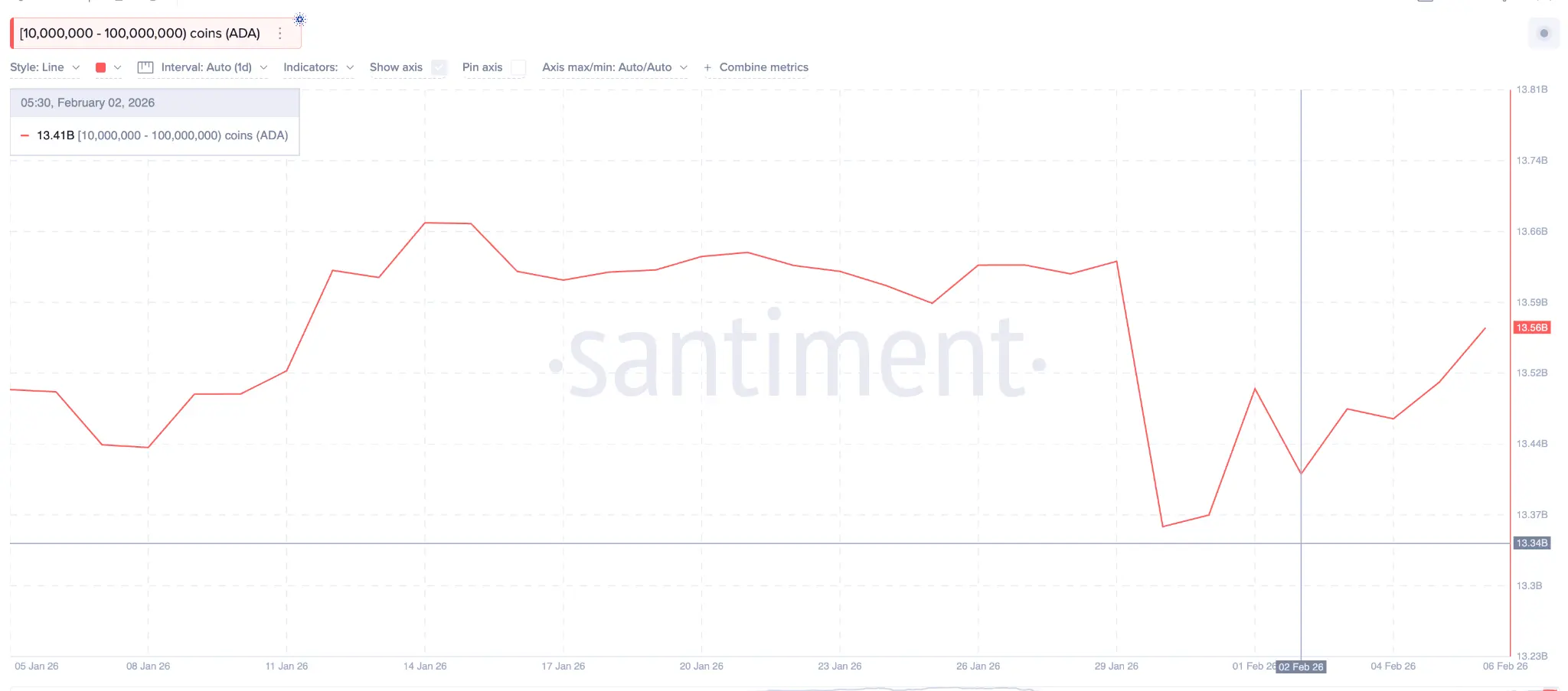
TokenBTC, ETH, XRP, ADA and SHIB Price Analysis for February 6
The crypto market is facing one of the biggest dumps in recent times, according to CoinMarketCap.$BT
2026-02-07 02:03
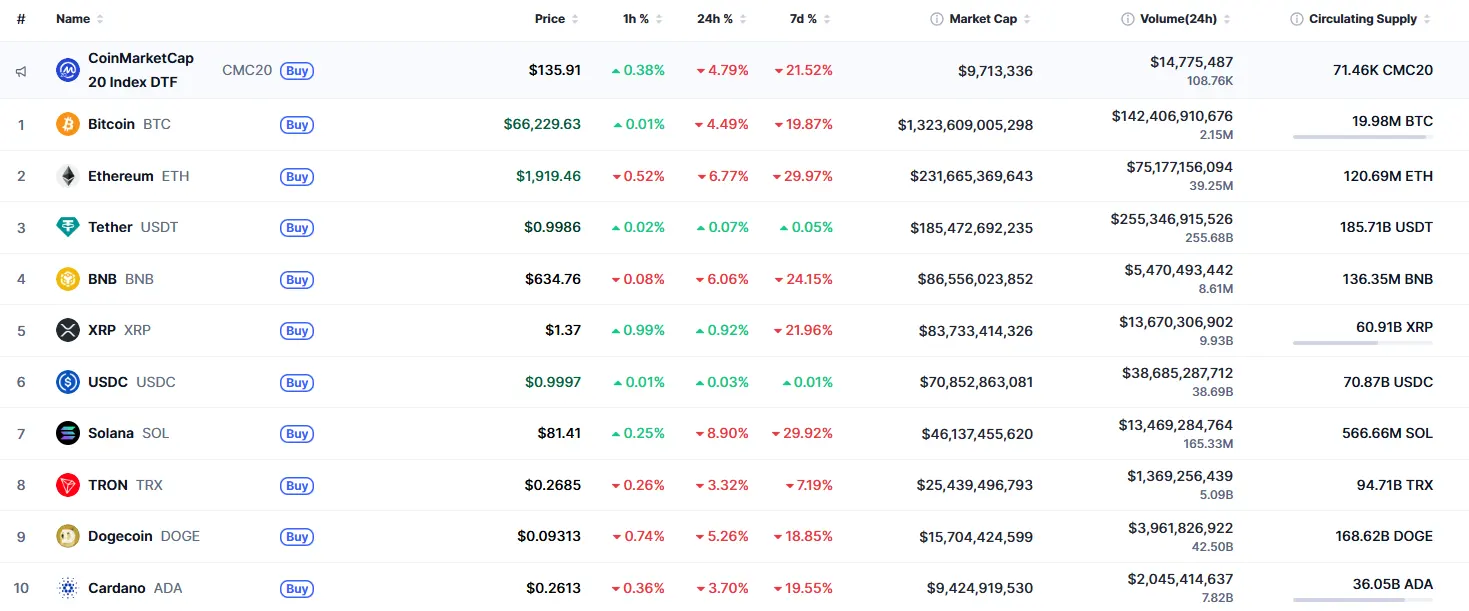
TokenCardano Price Forecast for Feb 6: Heres Key Level to Reclaim as ADA Falls Below Fib Extension
Cardano faces a critical resistance level at an important Fibonacci extension, as an expert analyst
2026-02-06 22:03
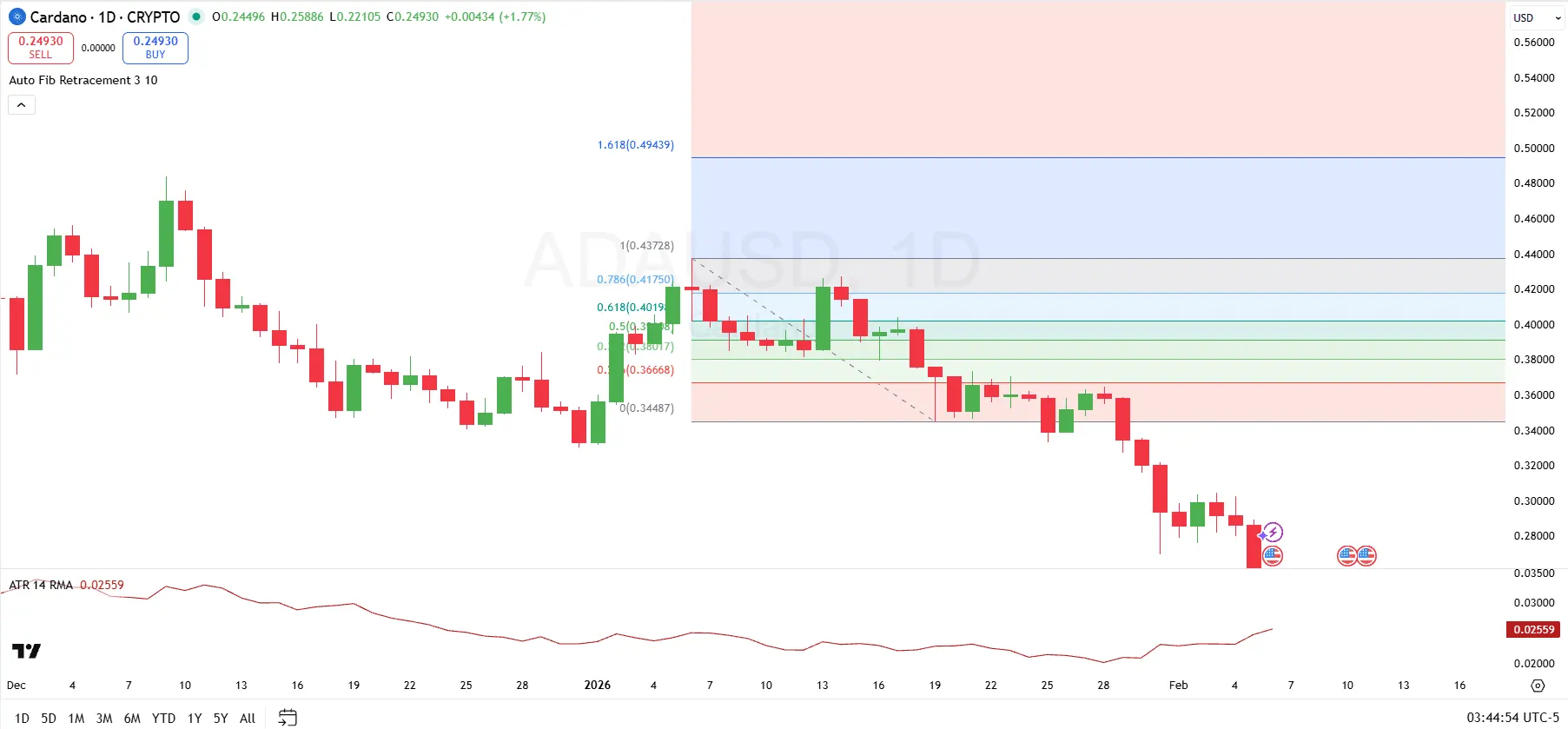
TokenCardano Creator Calls on ADA Community Amid $1.05 Billion Crypto Bloodbath
Cardano Founder Charles Hoskinson remains a relentless crypto developer first, despite crypto itself
2026-02-06 02:02
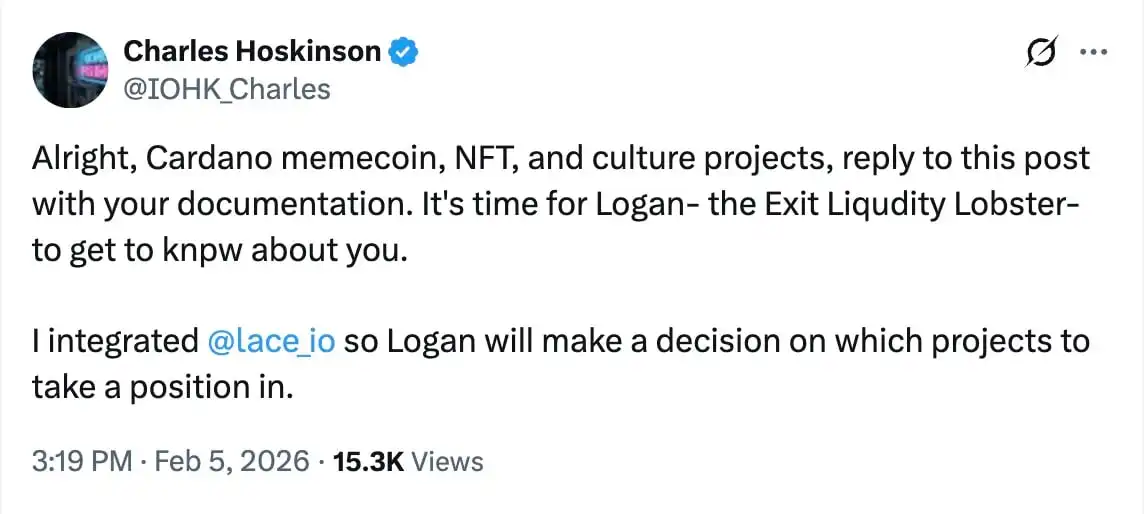
TokenCardano Price Prediction for Feb 3: Here Are Key Support and Resistance Levels for ADA Price
Cardano is attempting a short-term recovery as traders monitor key technical levels to assess whethe
2026-02-03 20:02
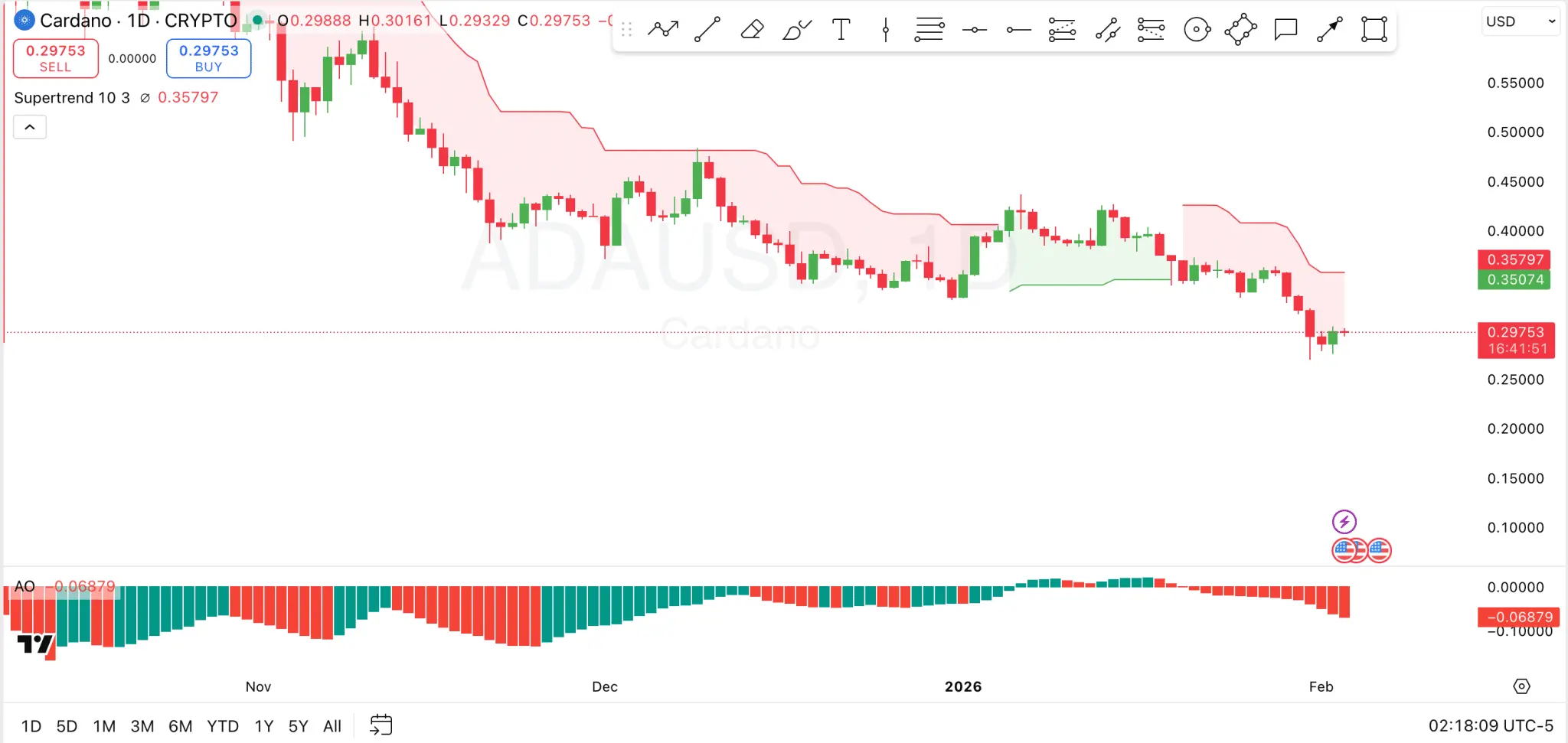
TokenWhy a 45% ADA Price Discount and Reversal Hope Couldnt Unite Cardano Whales
The Cardano price is trading at a deep discount. Since early December, the price has fallen nearly 4
2026-02-03 00:01
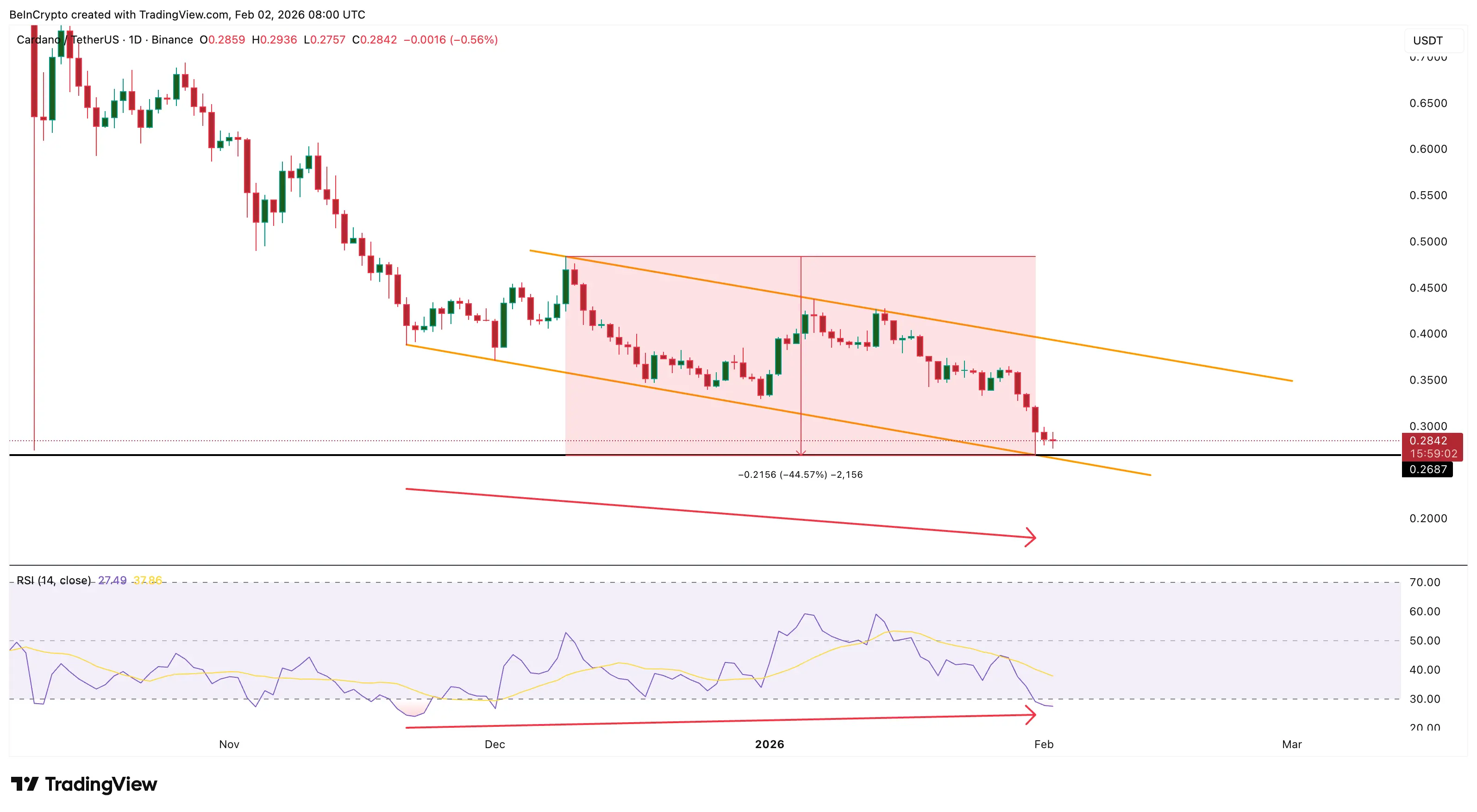
TokenCan Cardano (ADA) Price Beat Weak February History With a 90% Breakout Setup?
Cardano price enters February at an uncomfortable but interesting point. January is expected to clos
2026-01-29 21:03
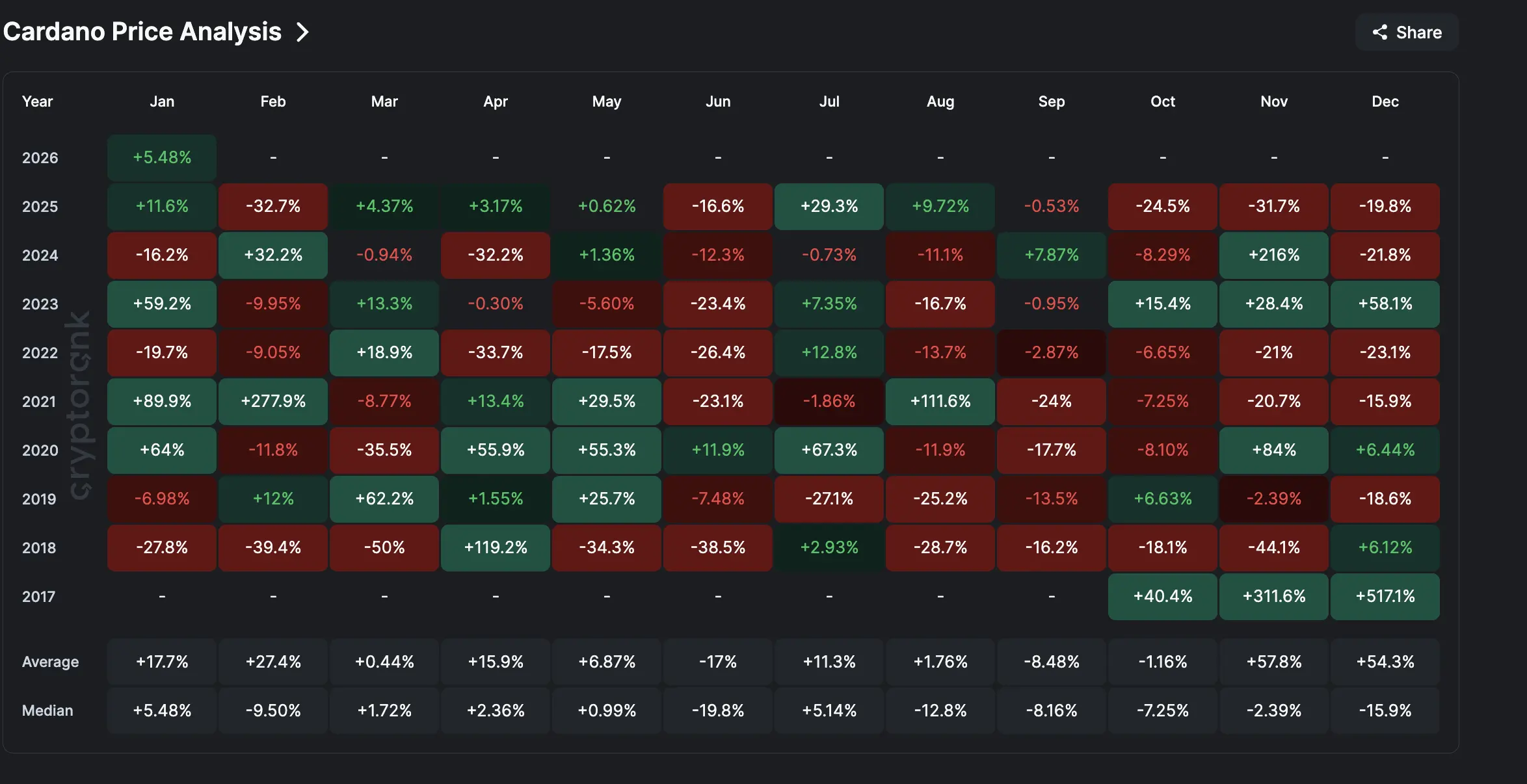
TokenOne Reversal Hope Explains Why Big Money Bought the 20% Cardano (ADA) Price Dip
The Cardano price fell more than 20% between January 14 and January 25, dropping to fresh local lows
2026-01-27 23:03
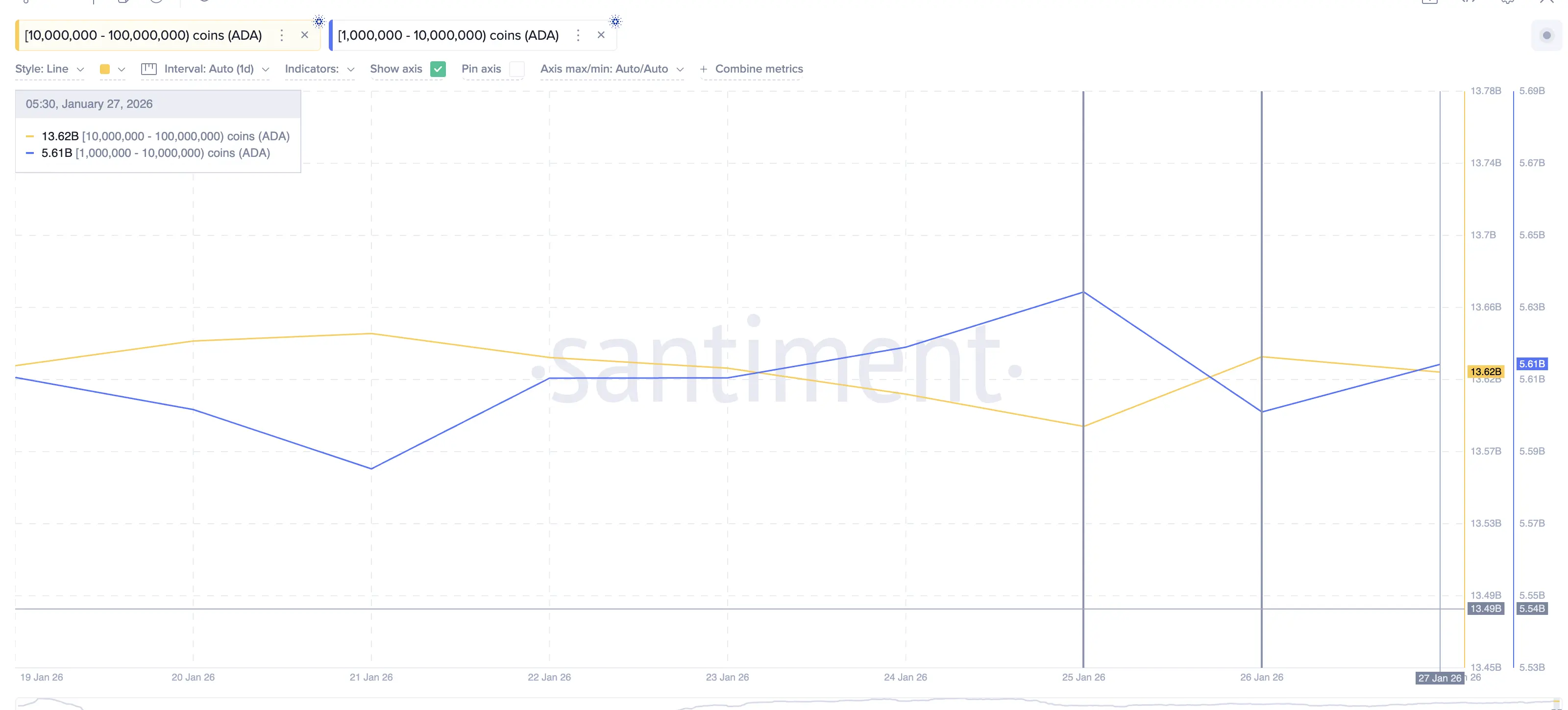
TokenWhat Cardano Whales $161 Million ADA Accumulation Means for Price
Smart money wallets have continued to accumulate Cardano (ADA) over the past two months, even as the
2026-01-27 13:02
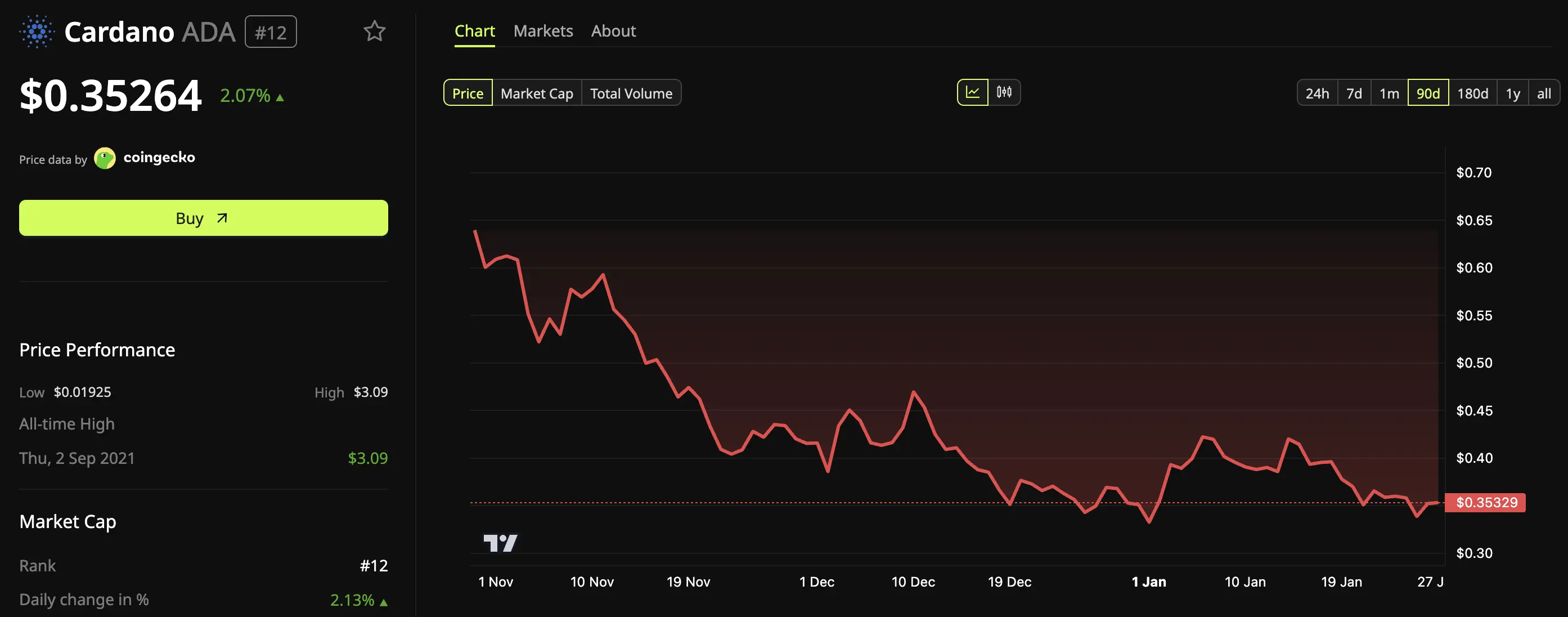


105 ratings
View all comments